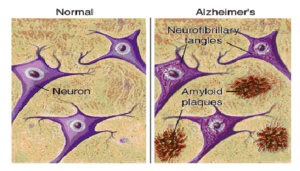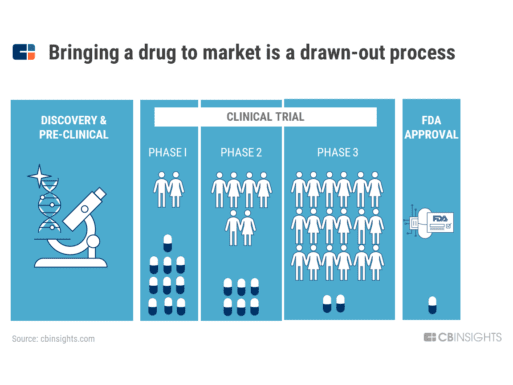 Researchers out of Washington University in St. Louis have developed a blood test that could accurately predict early Alzheimer’s brain changes before cognitive symptoms arise. The test measures the Alzheimer’s protein amyloid beta in the blood. The researchers report that they can then use those levels to predict whether the protein has accumulated in the brain. They say the test is 94 percent accurate when combined with both the patient’s age and the presence of a specific genetic variant.
Researchers out of Washington University in St. Louis have developed a blood test that could accurately predict early Alzheimer’s brain changes before cognitive symptoms arise. The test measures the Alzheimer’s protein amyloid beta in the blood. The researchers report that they can then use those levels to predict whether the protein has accumulated in the brain. They say the test is 94 percent accurate when combined with both the patient’s age and the presence of a specific genetic variant.
Accumulation of the amyloid beta protein in the brain is one of the most common factors considered for an Alzheimer’s diagnosis. The novel blood test uses a method called mass spectrometry to measure two forms of amyloid beta in a patient’s blood: amyloid beta 40 and amyloid beta 42. The ratio between the two decreases as amyloid beta deposits in the brain increase.
The findings were published in the journal Neurology on August 1. They are a significant step towards a blood test that can accurately identify people who may develop Alzheimer’s before symptoms arise. The Alzheimer’s blood test may be more sensitive than PET scans, the current gold standard for detecting amyloid buildup in the brain.
How The Study Worked
The study involved 158 adults over 50 years old. One hundred forty-eight of the participants were cognitively normal, while the other ten had some sort of cognitive decline. Every participant provided at least one blood sample and took one PET brain scan.
Researchers then classified each blood sample and PET scan as either amyloid positive or negative. They found that the Alzheimer’s blood test agreed with the PET scan 88 percent of the time. This is promising, but not high enough of a percentage for a clinically diagnostic test.

Credit: columbiasciencereview.com
The researchers included a few major risk factors for Alzheimer’s to improve the test’s accuracy. A person’s age is the largest risk factor; after age 65, the chance of developing the disease doubles every five years. The genetic variant known as APOE4 increases disease risk three-t0-fivefold, and a person’s sex also plays a role. (Two out of three Alzheimer’s patients are women.) The scientists found that including age and APOE4 status in their analysis raised the accuracy of the blood test to 94 percent. Sex, however, did not affect the analysis in a significant way.
An interesting thing also occurred when follow-up tests were done four years later. Some people’s blood tests were initially considered false positives because the blood test was positive for amyloid-beta, but the PET scan was negative. Some of these participants with mismatched results actually tested positive on the brains scans after the four-year follow up. This suggests that the Alzheimer’s blood tests from years prior actually did flag early signs of the disease that the “gold standard” missed.
Potential Benefits
The blood test developed by researchers at WUSTL may be available at doctors’ offices within a couple years. The researchers hope that detecting the disease early will help them better manage the disease. Brains are severely damaged by the time people exhibit forgetfulness and other Alzheimer’s symptoms, so treatments, even when they become available, are unlikely to do much good.
Additionally, clinical drug trials for possible Alzheimer’s preventative drugs have always been handcuffed because it’s difficult to identify patients with Alzheimer’s brain changes when there are no cognitive issues. An Alzheimer’s blood test could be a critical way to efficiently screen people before they develop signs of the disease. This, in turn, would enable those people to participate in clinical trials to evaluate drugs that could prevent or slow the progression of Alzheimer’s.

The new Alzheimer’s blood test could be an important
stepping stone for future clinical trials
Credit: cbinsights.com
“Right now we screen people for clinical trials with brain scans, which is time-consuming and expensive, and enrolling participants takes years,” said senior author Randall J. Bateman, M.D. “But with a blood test, we could potentially screen thousands of people a month. That means we can more efficiently enroll participants in clinical trials, which will help us find treatments faster, and could have an enormous impact on the cost of the disease as well as the human suffering that goes with it.”
Identifying Alzheimer’s before symptoms arise is paramount in the fight against this debilitating and deadly disease. If this new blood test becomes the norm in the future, both medical and financial costs will go down. Ideally, this test will enable more clinical drug trials, which could lead to preventive medicine to combat Alzheimer’s.

 New Alzheimer’s Blood Test Could Become Standard for Early Detection
New Alzheimer’s Blood Test Could Become Standard for Early Detection


 Final Messages of the Dying
Final Messages of the Dying
 Will I Die in Pain?
Will I Die in Pain?















